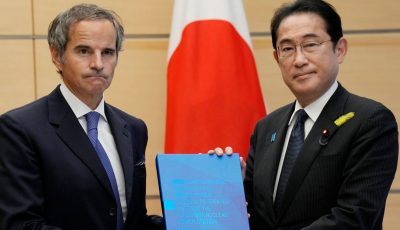The power of words
Don Farrell’s book about World War ll history. While I do not wish to argue anything about the contents of his book, I do have some a question about an important matter that may be of necessity and significance his audiences.
No one would argue that the planned bombing of the targeted cities in Japan ended the war. I would not argue that. It happened—the collective death of men, women, and children numbering at least 150,000 or more.
What would it be today if the planned bombings were stayed or deferred by the American forces? The Nazis paid the price for all the atrocities committed, but the imperial Japanese government could have avoided much destruction if it had heeded the Potsdam Declaration.
This brings me to my point: Was the Potsdam Declaration an important matter had Japan surrendered unconditionally or accepted the consequences of what followed during the days after it received the Potsdam Declaration from the Allied Forces?
The end of World War ll could have had a different outcome had the Imperial Army of Japan surrendered to the terms of the Potsdam Declaration on July 26, 1945. Japan would have softened the blow on its people and land. The Japanese Cabinet favored settlement, and the politics of the day seemed to overcome clarity about facing the eventual reality and knowing what specific consequences coming if the offer for surrender was treated lightly.
The Imperial Cabinet issued a statement explaining their position by treating the peace offer as a mokusatsu, which either means: “We are considering it” or “We are ignoring it.” It turned out that the English press interpreted Japan’s position as a “we are ignoring” the Potsdam Declaration altogether. After the war, historians learned that the Japanese people interpreted mokusatsu to mean “We are considering it.” The idle time before Aug. 6, 1945, and almost two weeks after the Potsdam Declaration date, Japan realized the carnage of the atomic bomb.
The misunderstanding or misinterpretation of a word became history. Should Mr. Farrell include this human error for the enlightenment of audiences in his book? This piece of significant historical information could have been inserted into the book, and the war could have ended differently. It was about rushing to conclusion when words are used outside its conventional meaning and stereotype. Such erroneous perspective over a word affects receivers and givers of any spoken language. It could have been a different World War ll ending.
Francisco R. Agulto
Kannat Tabla, Saipan



























